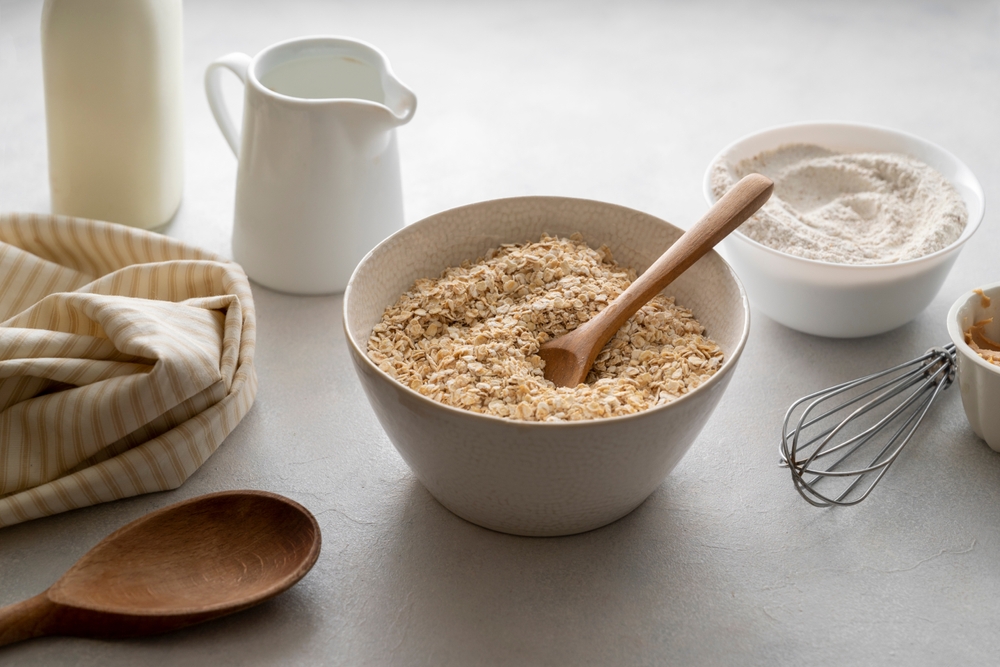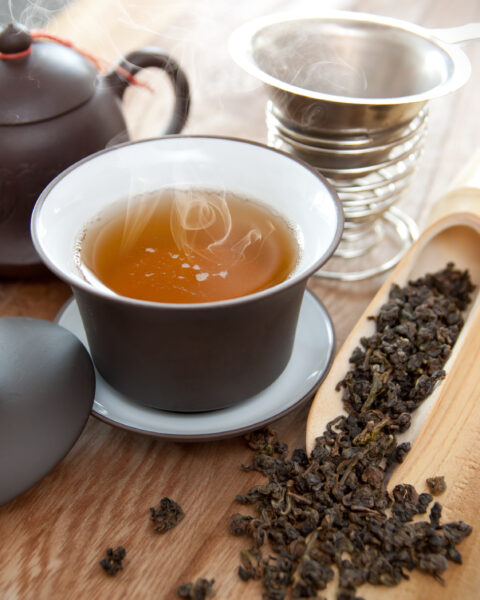Staying healthy is something we all care about, especially when it comes to keeping our immune systems strong. The good news is that boosting your immunity can be as simple as adding a few key ingredients to your meals. By incorporating these immune-boosting ingredients into your daily recipes, you’re giving yourself a delicious and easy way to support your health. These powerful foods are easy to find and can fit right into the dishes you already love.
Contents
- 1 Turmeric
- 2 Ginger
- 3 Garlic
- 4 Citrus Fruits
- 5 Spinach
- 6 Almonds
- 7 Broccoli
- 8 Yogurt
- 9 Green Tea
- 10 Blueberries
- 11 Kale
- 12 Mushrooms
- 13 Red Bell Peppers
- 14 Elderberries
- 15 Oats
- 16 More From RetailShout
- 17 14 Budget-Friendly Grocery Shopping Tips from Savvy Shoppers
- 18 15 Kitchen Items Pro Organizers Would Never Declutter
Turmeric
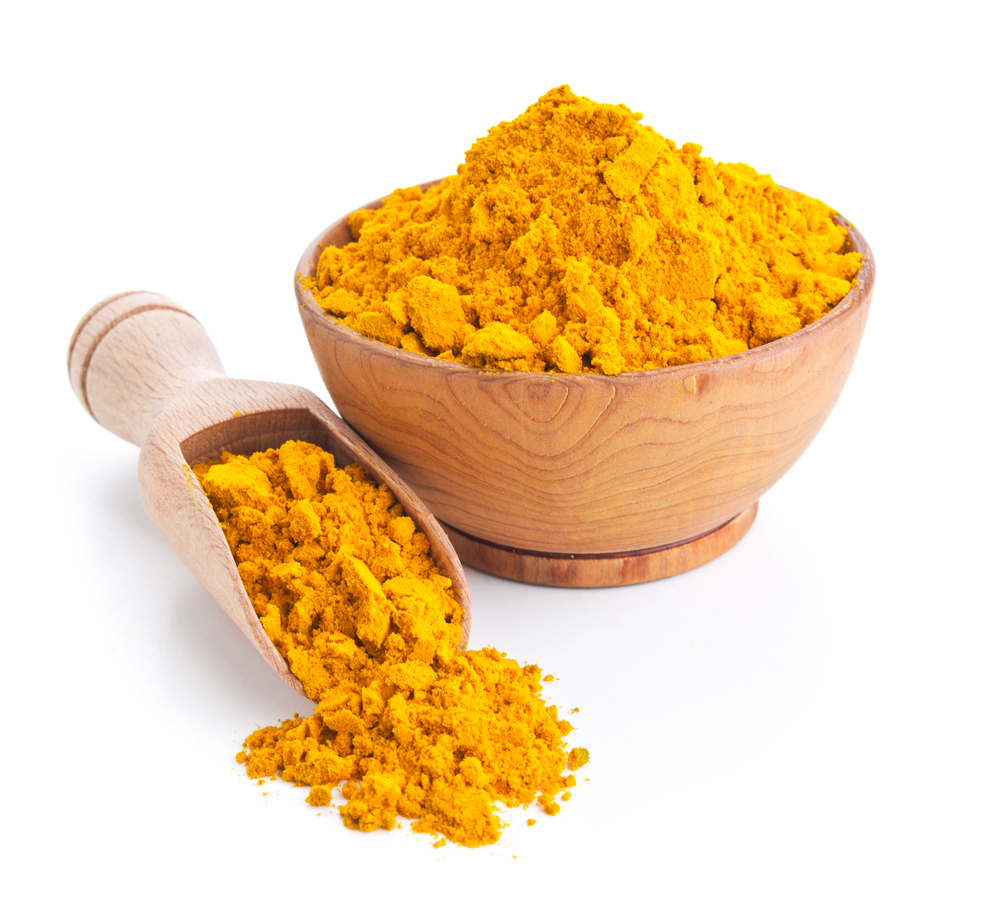
Turmeric is renowned for its anti-inflammatory properties, primarily due to curcumin, its active compound. Curcumin has been shown to enhance the immune system’s ability to fight infections by reducing inflammation at a cellular level. Regular consumption of turmeric can help prevent colds and flu. Adding it to curries, teas, or smoothies provides both flavor and health benefits. Turmeric pairs well with black pepper, which enhances curcumin absorption in the body. As a staple in traditional medicine, turmeric has been used for centuries in both Indian and Chinese cultures.
Ginger
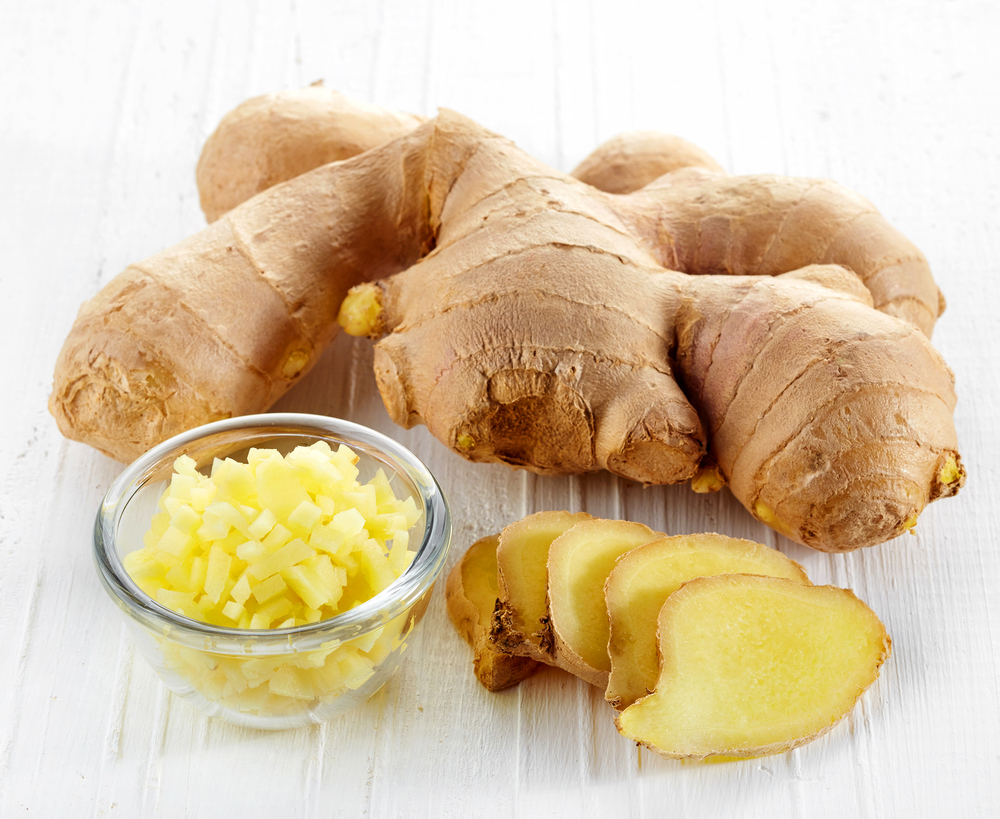
Ginger is a powerful root known for its ability to reduce inflammation and soothe symptoms of respiratory infections. The active compound, gingerol, has potent antioxidant and anti-inflammatory effects that can boost the immune response. It is often used to alleviate nausea and digestive discomfort while promoting circulation. Adding fresh ginger to teas, smoothies, or stir-fries makes it easy to incorporate into daily meals. The warmth of ginger is comforting, especially during cold seasons. It also aids in detoxifying the body by stimulating the lymphatic system.
Garlic
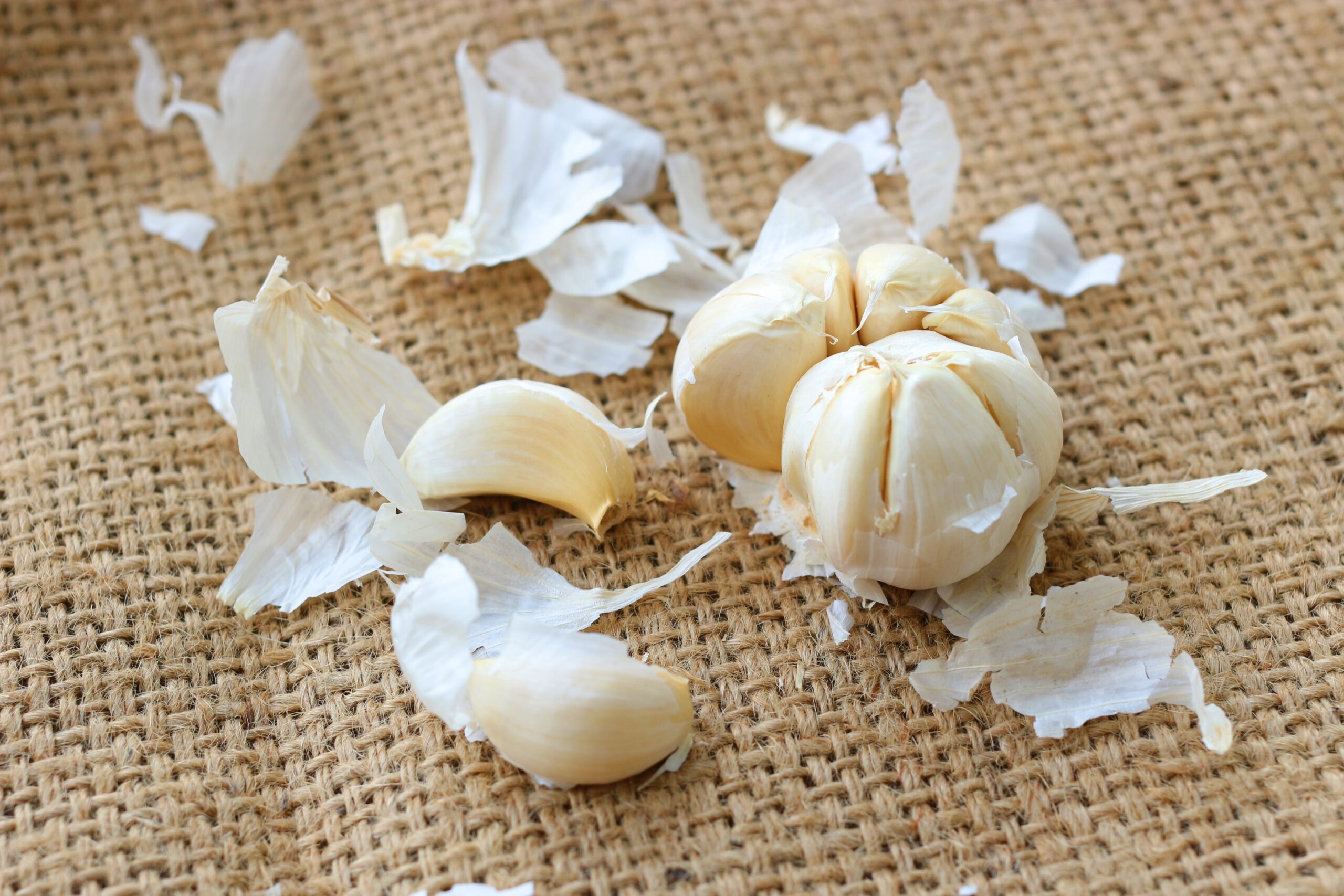
Garlic contains allicin, a compound known for its ability to boost the immune system by stimulating white blood cells to combat illness. It has antiviral, antibacterial, and antifungal properties that help the body fend off infections, particularly during flu season. Raw garlic provides the most benefits, but cooking it lightly can still retain some of its potency. Incorporating garlic into soups, sauces, or dressings can enhance both flavor and health. Its sulfur compounds also promote heart health by reducing cholesterol levels. Regular consumption is linked to a reduced risk of common colds and other respiratory infections.
Citrus Fruits

Citrus fruits like oranges, lemons, and grapefruits are rich in vitamin C, a crucial nutrient for immune defense. Vitamin C encourages the production of white blood cells, which are vital for fighting infections. Consuming citrus daily can reduce the severity and duration of colds. They can be eaten as a snack, juiced, or added to salads and marinades. The high antioxidant content in citrus fruits helps protect the body from oxidative stress, a factor in many chronic diseases. Their refreshing taste also adds a vibrant twist to both sweet and savory dishes.
Spinach

Spinach is loaded with antioxidants, including vitamins C and E, both of which are crucial for immune function. It also contains beta carotene, which the body converts into vitamin A to support the immune system. Spinach is best consumed raw or lightly cooked to preserve its nutrient content. Adding it to smoothies, salads, or soups is a convenient way to boost your intake. The fiber in spinach also supports gut health, which is closely linked to immune strength. Its versatility makes it a great addition to various dishes without overpowering other flavors.
Almonds
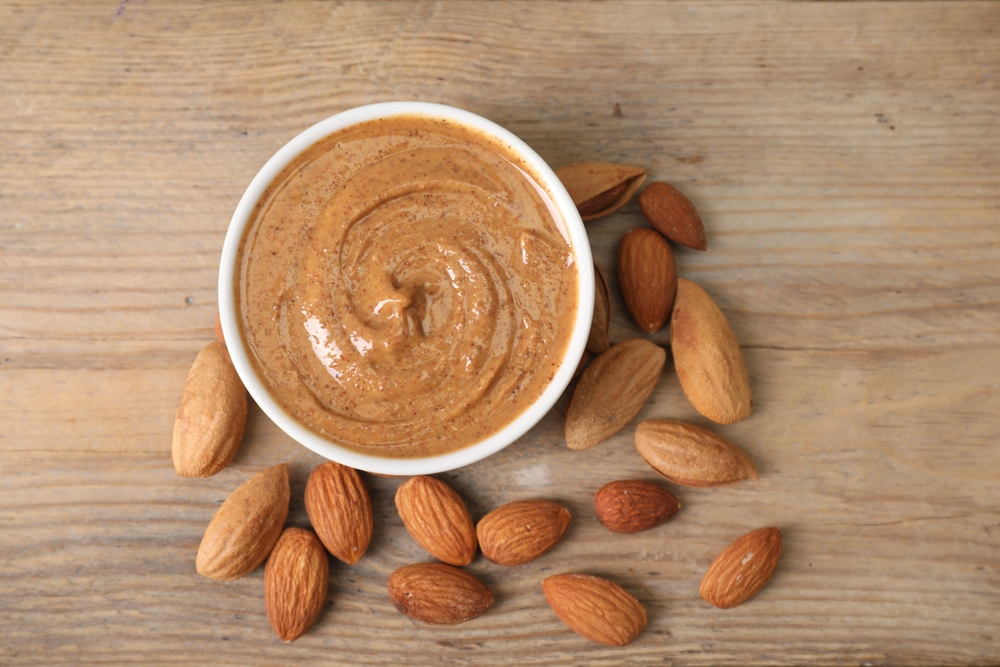
Almonds are rich in vitamin E, a fat-soluble antioxidant that is critical for maintaining immune function. Vitamin E helps to protect cells from damage caused by free radicals. A small handful of almonds daily can provide nearly all the vitamin E you need. They can be eaten raw, added to yogurt, or used in baking. The healthy fats in almonds also promote heart health, further supporting the body’s defense system. Their magnesium content is beneficial for stress reduction, which in turn helps keep the immune system strong.
Broccoli

Broccoli is a nutrient-dense vegetable, rich in vitamins A, C, and E, all of which contribute to a strong immune system. It also contains fiber and antioxidants that support overall health and well-being. Eating broccoli raw or lightly steamed preserves its vitamin content. Including it in stir-fries, salads, or casseroles is a delicious way to increase its intake. The high levels of sulforaphane in broccoli further boost detoxification processes in the body. Its crunchy texture also makes it a great addition to a variety of recipes.
Yogurt

Yogurt, particularly those with live and active cultures, is an excellent source of probiotics, which are beneficial for gut health. A healthy gut is crucial for a strong immune system, as much of the body’s immune response originates in the digestive tract. Eating yogurt regularly can help balance the bacteria in your gut, leading to fewer infections. Opt for plain, unsweetened yogurt to avoid added sugars, and enhance it with fresh fruits or seeds. The calcium in yogurt also contributes to bone health. Its protein content makes it a satisfying addition to breakfast or snacks.
Green Tea

Green tea is packed with antioxidants, particularly epigallocatechin gallate (EGCG), which has been shown to boost immune function. Drinking green tea daily can help fend off infections and reduce inflammation. It also contains amino acids, such as L-theanine, which may aid in the production of germ-fighting compounds in your T-cells. Whether enjoyed hot or cold, green tea is a refreshing and beneficial drink. The caffeine in green tea provides a gentle energy boost without the jitters associated with coffee. It also supports healthy brain function, making it a great beverage choice for overall wellness.
Blueberries
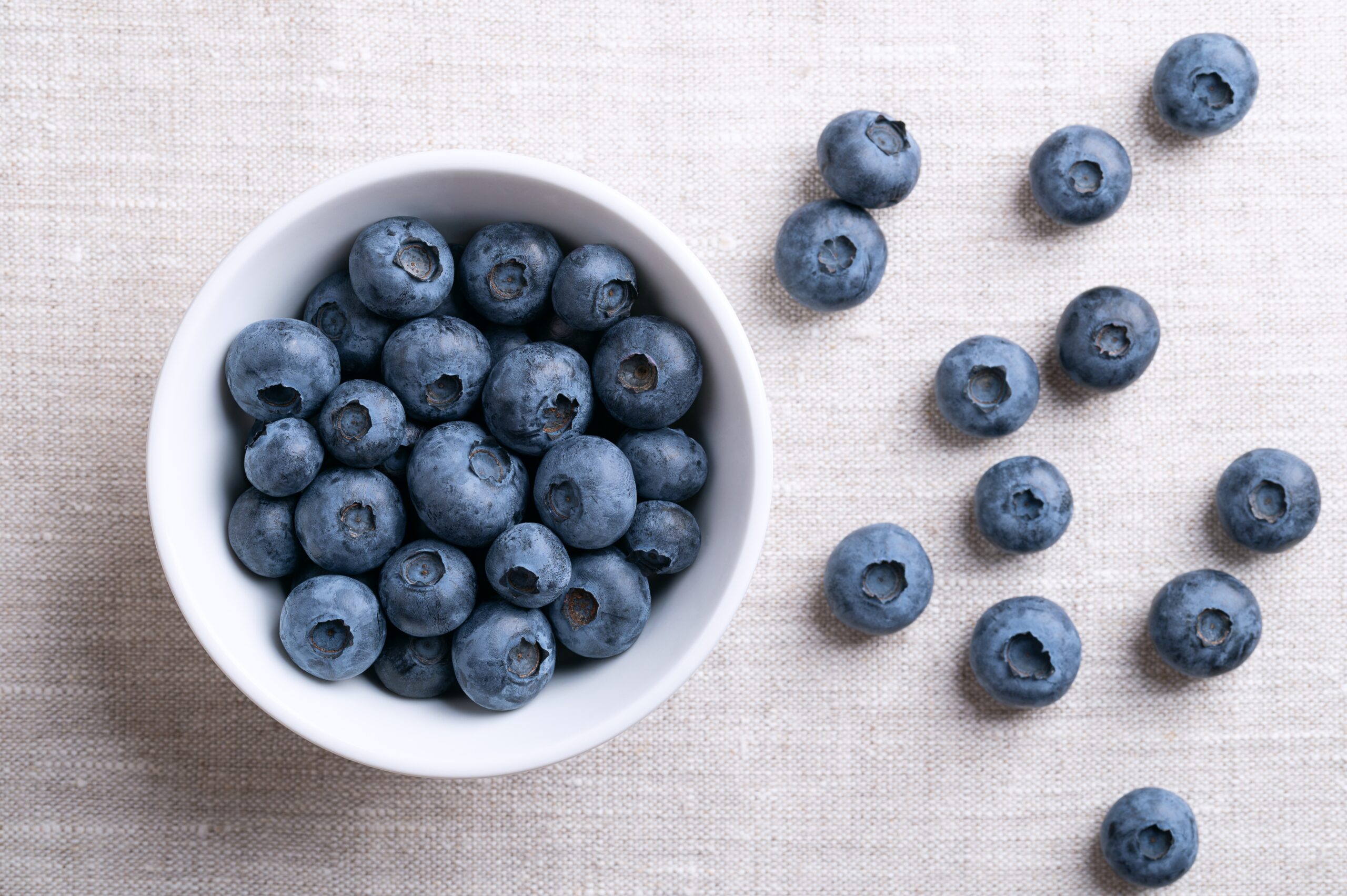
Blueberries are rich in flavonoids, which have antioxidant properties that can help reduce damage to cells and bolster the immune system. They are particularly high in vitamin C and vitamin K, both important for immune health. Consuming blueberries regularly can help lower the risk of upper respiratory infections. They are a versatile fruit that can be added to smoothies, salads, or eaten as a snack. Blueberries also support brain health, making them a superfood for both mind and body. Their natural sweetness makes them a popular choice for immune-boosting snacks and desserts.
Kale

Kale is a leafy green vegetable that is loaded with vitamins A, C, and K, all of which are important for immune function. The antioxidants in kale help to neutralize free radicals, supporting the body’s defense system. It is best consumed raw in salads or smoothies to retain its nutrient content. Adding kale to soups or sautés is another delicious option. The fiber in kale also supports digestive health, which is closely linked to the immune system. Its slightly bitter flavor pairs well with citrus and other fruits, enhancing the taste of your dishes.
Mushrooms
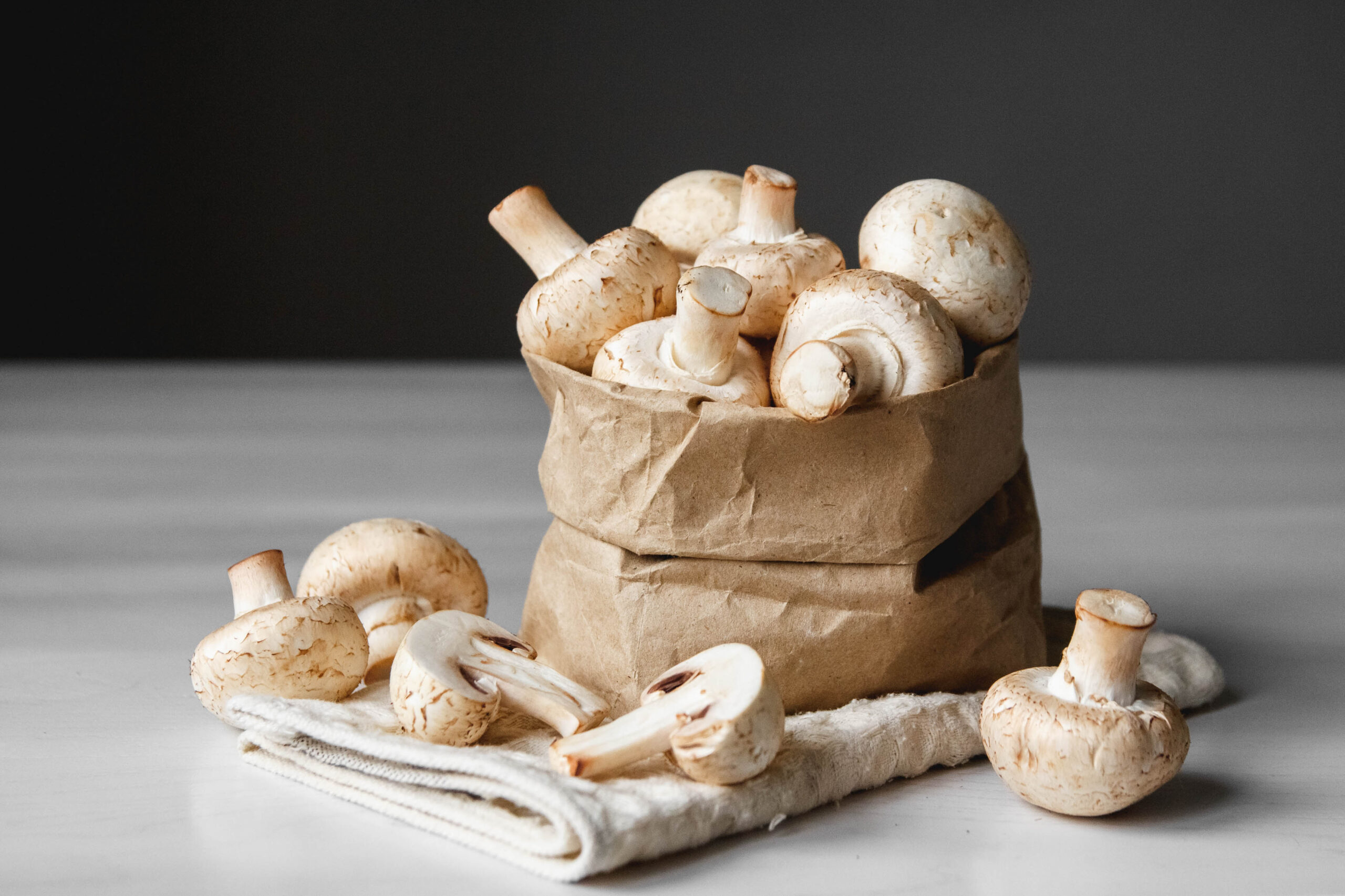
Mushrooms, particularly varieties like shiitake and maitake, are rich in beta-glucans, compounds that stimulate the immune system. They are also a source of vitamin D, which is crucial for immune health, especially during the winter months. Mushrooms can enhance the body’s ability to fight off infections. Adding them to soups, stir-fries, or as a topping on pizza is an easy way to enjoy their benefits. Their umami flavor makes them a versatile ingredient in both vegetarian and meat-based dishes. Mushrooms also support the body’s detoxification processes.
Red Bell Peppers
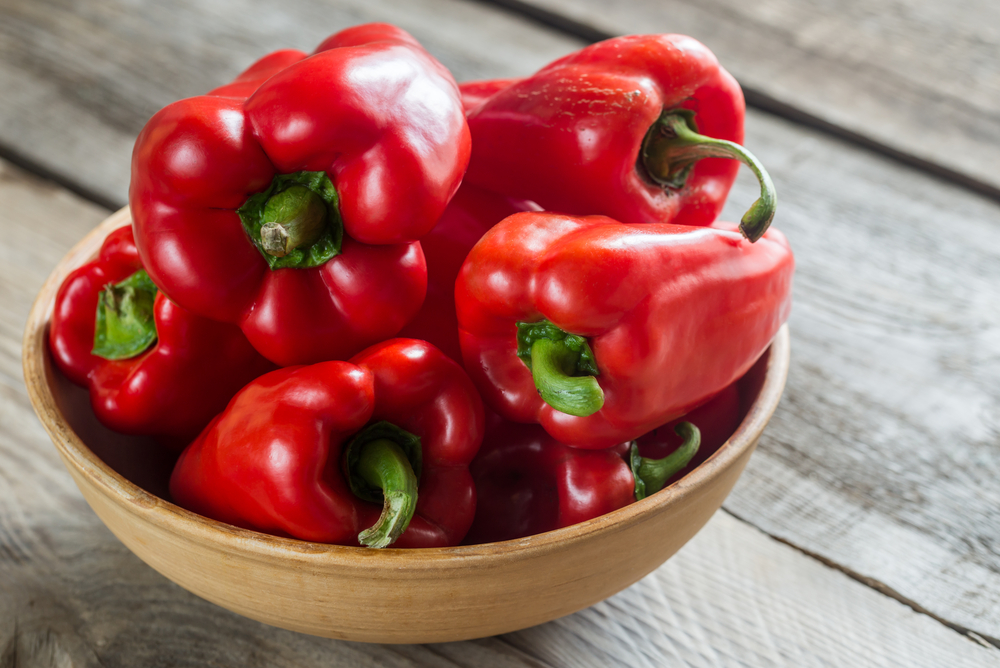
Red bell peppers are one of the richest sources of vitamin C, even more than citrus fruits. This makes them an excellent ingredient for supporting the immune system. They also contain antioxidants that help protect the body from oxidative stress. Consuming them raw in salads or cooked in stir-fries is a delicious way to incorporate them into your meals. The vibrant color of red bell peppers also adds visual appeal to dishes. Their natural sweetness pairs well with a variety of flavors, making them a versatile and nutritious ingredient.
Elderberries
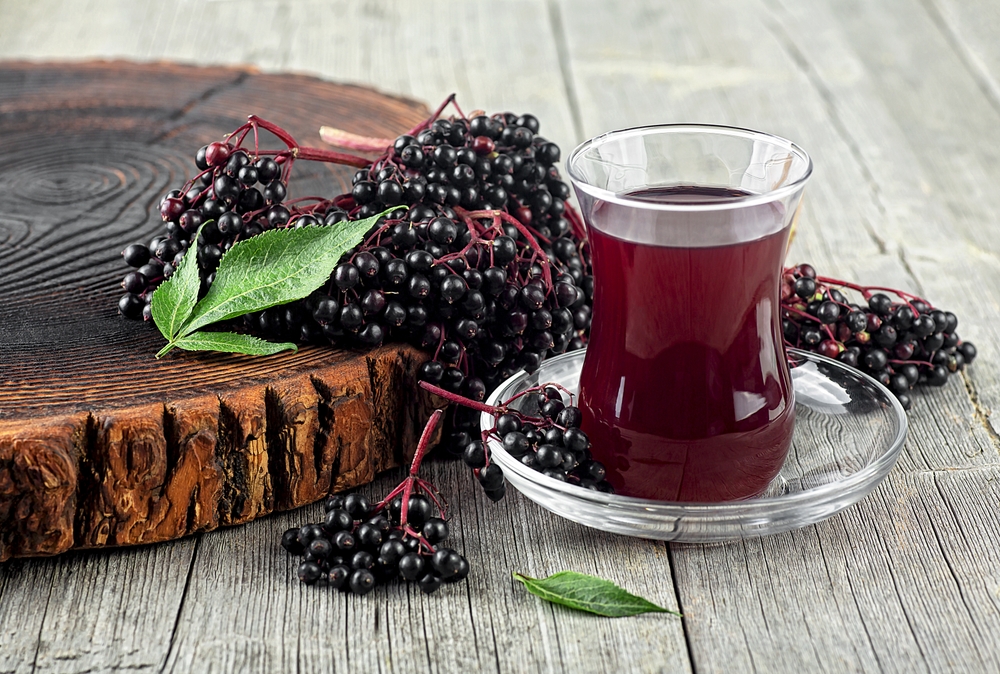
Elderberries have been used in traditional medicine for centuries to treat colds and flu. They are rich in antioxidants, particularly anthocyanins, which boost the immune response. Elderberry extract has been shown to reduce the severity and duration of flu symptoms. It can be consumed in syrups, teas, or as part of a supplement. Elderberries also contain vitamin C and other immune-supporting nutrients. Their slightly tart flavor makes them a great addition to jams, sauces, or baked goods. Regular consumption can help protect against respiratory infections.
Oats
Oats are a great source of beta-glucans, a type of fiber that has been shown to enhance immune function. Regular consumption of oats can help stimulate the activity of immune cells, such as macrophages and natural killer cells. Oats are also high in antioxidants and anti-inflammatory compounds that protect the body from disease. They can be eaten as oatmeal, added to smoothies, or used in baking. The fiber in oats also supports gut health, which is vital for a well-functioning immune system. Oats provide a hearty and satisfying start to the day.
This article originally appeared on RetailShout.
More From RetailShout
19 Simple Ingredients for Creating Healthy Homemade Soups
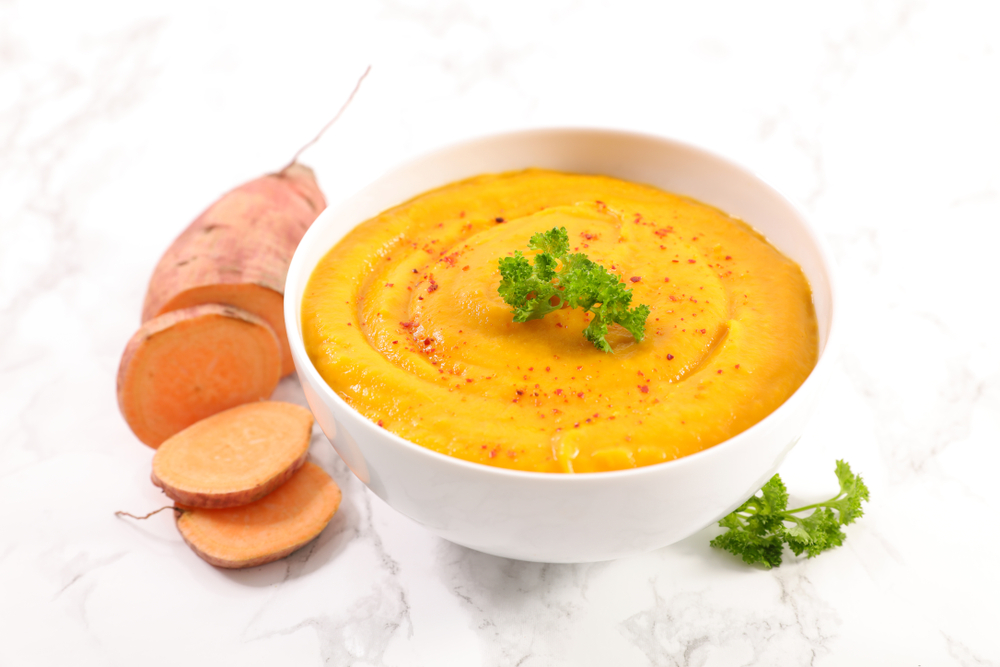
Nothing beats a warm, hearty soup except maybe one that’s both delicious and healthy. Here are some recipes with easy-to-find ingredients, and grab a spoon, because things are about to get souper healthy! Read More
14 Budget-Friendly Grocery Shopping Tips from Savvy Shoppers

Think saving money at the grocery store means living on ramen noodles? Think again. From savvy store maneuvers to secret savings strategies, these experts show that you don’t have to sacrifice quality for cost. Get ready to discover how to navigate the aisles like a pro and make your budget work harder for you. Read More.
15 Kitchen Items Pro Organizers Would Never Declutter

Did you feel like no matter how much you clean, the kitchen always seems to need more cleaning? You are not alone! Most households struggle with this due to the high traffic and constant use of the space. Understanding these problem areas, pro organizers here are 15 things essential for maintaining functionality, efficiency, and an aesthetically pleasing kitchen space that pro organizers would never get rid of. Read More.

